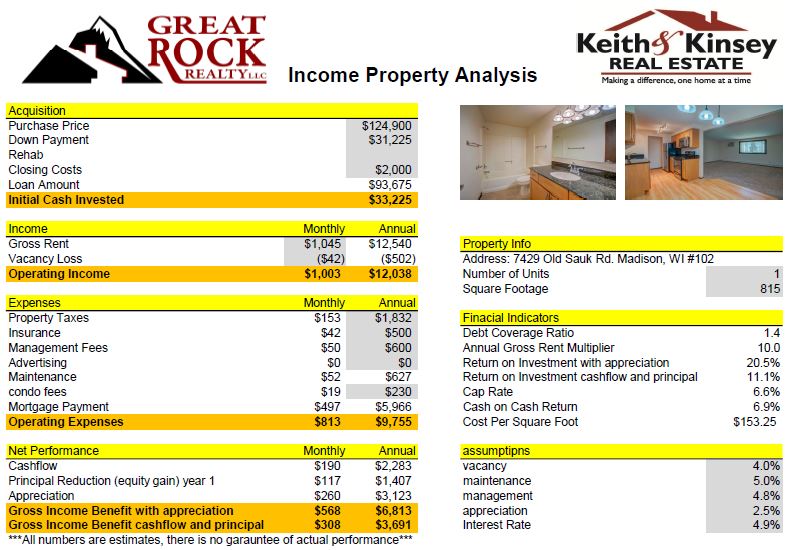Starting Out With Real Estate Investment
Have you ever considered rental property as an investment? An income producing property can be a great long term investment by providing a little bit of cashflow, monthly equity gains, and hopefully appreciation and tax savings (though there’s no garauntee to those two). At the same time it helps protect you from inflation. You see, a building is really a bundle of commodities (building materials), and during inflationary times the cost of those commodities increases and so does your real estate. Lastly, the tenants pay your mortgage and when the property has finally paid itself off, you end up with a great deal of equity and a really nice income from the cashflow.
Appreciation over the long term can turn into a huge profit. Even though the historical average has been about 4% appreciation per year, I tell people don’t plan on that. You could get caught in a declining market like 2007-2012, and if you were banking on appreciation you’d be in a losing situation. Always make sure a property makes sense the day you buy it from a cashflow perspective.
Similar things can be said about the tax advantages. While there are currently some nice tax benefits to income property (depreciation, deductible mortgage interest, etc), you can’t count on the fact that the tax code won’t change. In addition, you do actually have to reclaim your depreciation when you sell, unless you do a tax deferred exchange.
So, when I look at income property I really focus on the cashflow and equity gain from principal paydown. I consider any other income or tax savings just an added bonus.
So, how do you analyze an income property? We have an income property analysis spreadsheet (some people call it a pro forma). We take the income minus a vacancy factor and we subtract the operating expenses to get our actual cashflow. We can also calculate the equity gain from principal reduction based on a mortgage amatorization schedule. You should note that you will reduce your loan balance at a faster rate every year due to a lower balance and thus lesser interest ever year. These means that your equity gain will increase as the months go by (the first year is the least amount of equity gain).
Investing in a seller’s market can certainly be a challenge. It seems like there aren’t many good deals out there, and when you do find a great deal you are met with lots of competition from other buyers. This has left many investors buying properties with negative cashflow, sitting on the sidelines, or chasing deals off market.
We currently have a property listed on Old Sauk Rd in Madison that could be a great affordable property with solid returns for someone just starting out investing, or for an experienced investor to add to their portfolio. This property would return 11.1% of the initial investment in the first year based only on cashflow and principal reduction. If you did factor in a less than average appreciation rate of 2.5% , the property would return 20.5%. None of this factors in any potential tax benefits. Additional there is affordable property management already in place.


 Back Home
Back Home













Leave a Reply
You must be logged in to post a comment.